Quality and Safety
Session: Poster Session
(159) Duration of Boarding for Adult Mental Health Conditions with Co-morbid Medical Condition at an Acute Care Hospital: 5-year Analysis of Complex Case Committee
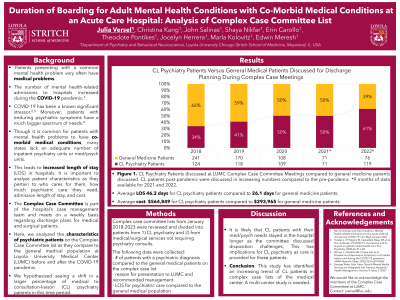
Trainee Involvement: Yes
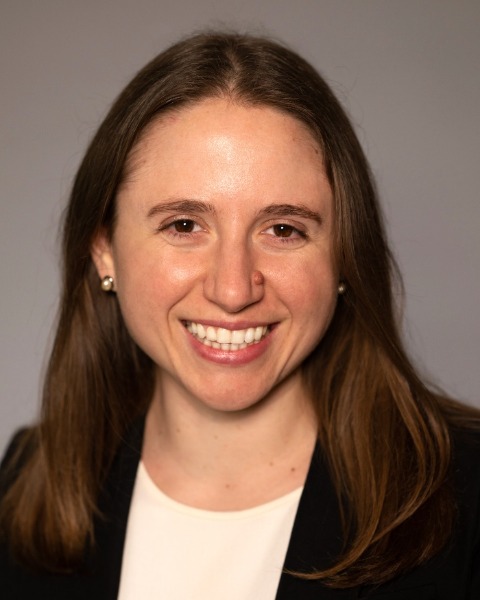
Julia L. Versel, MSc
Medical Student
Loyola University Chicago Stritch School of Medicine
Forest Park, Illinois, United States
Christina Kang, n/a
Medical Student
Loyola University Medical Center
Chicago, Illinois, United States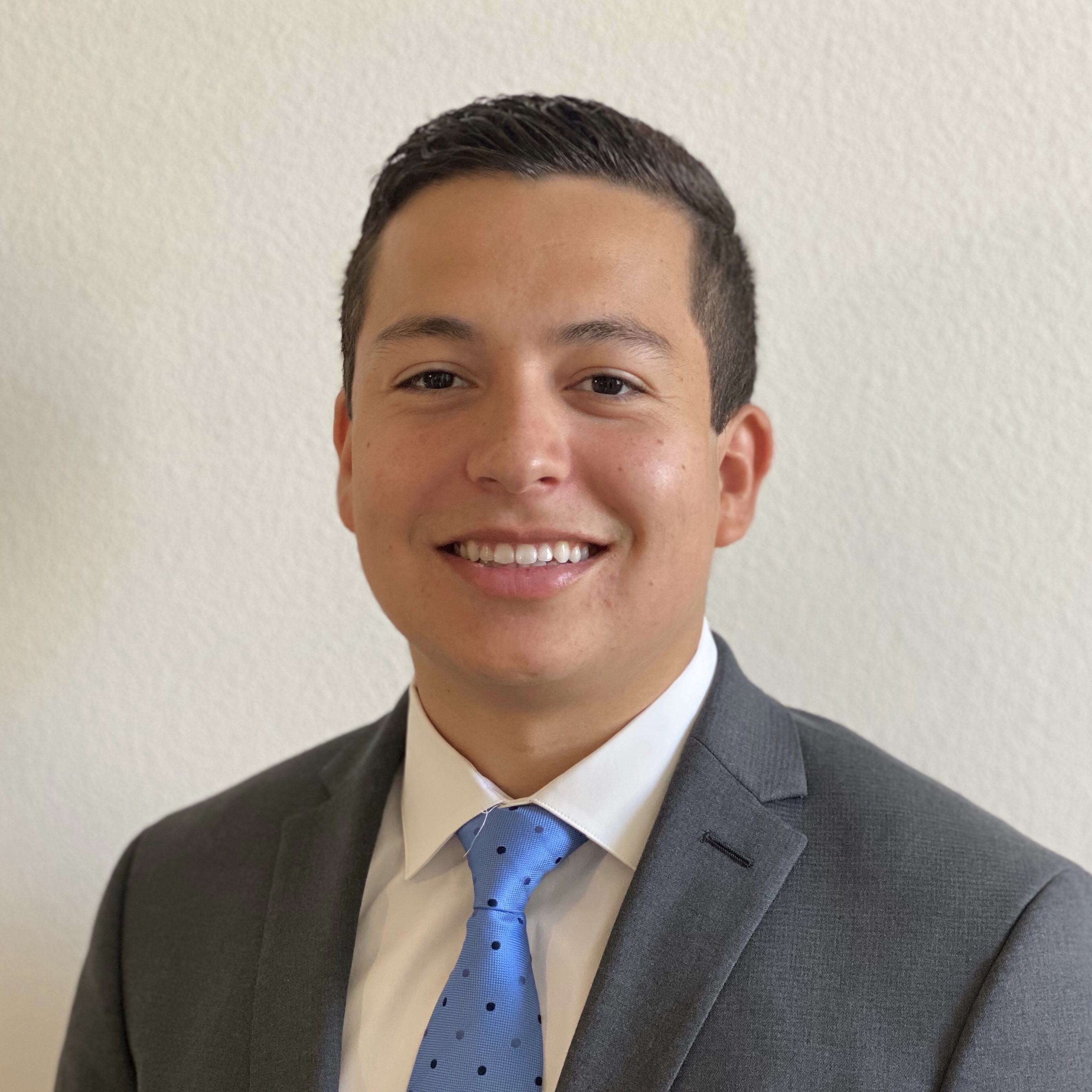
John Salinas, BA
Medical Student
Loyola University Chicago Stritch School of Medicine
Forest Park, Illinois, United States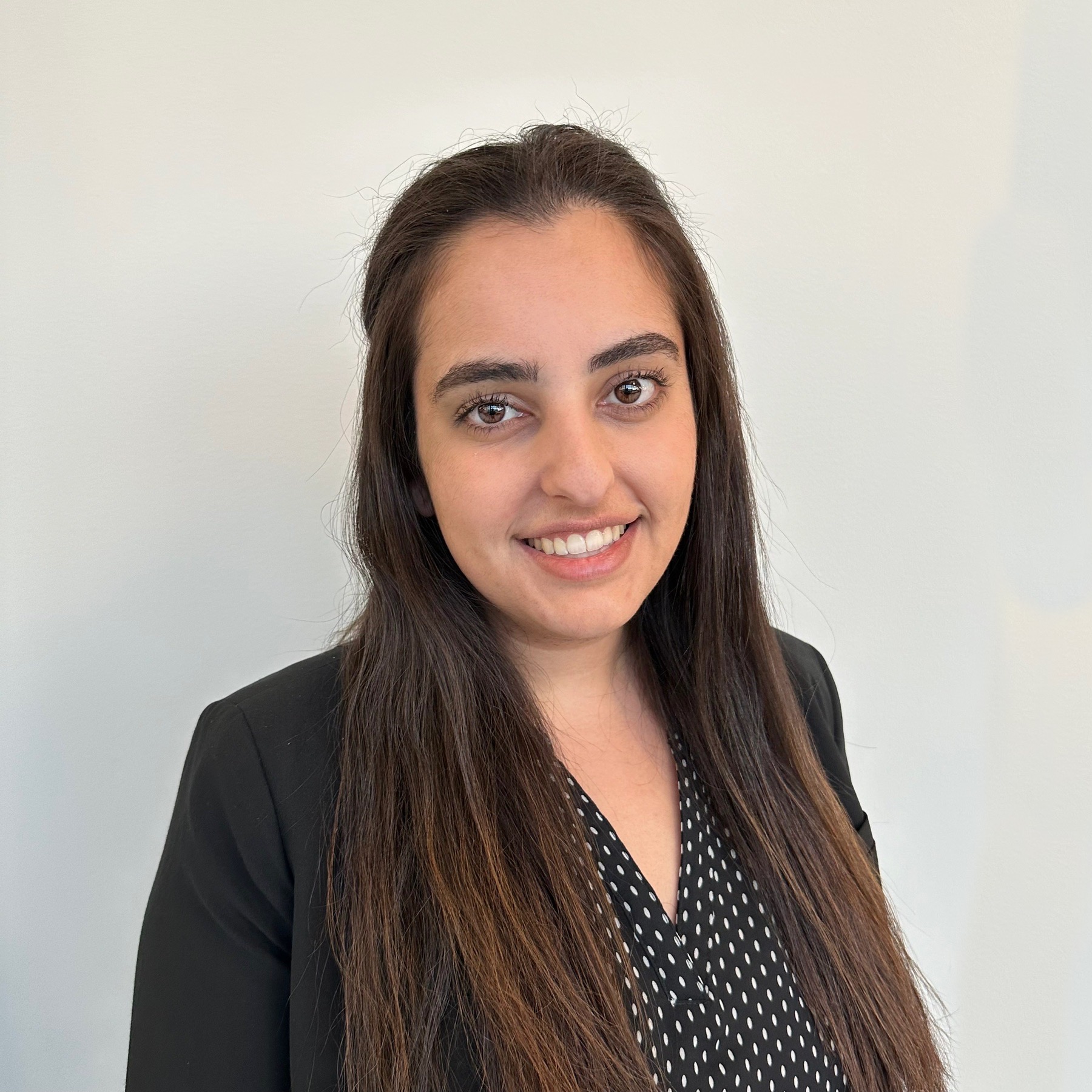
Shaya Nikfar, n/a
Medical Student
Stritch School of Medicine
Oak Park, Illinois, United States- EC
Erin Carollo, n/a
Medical Student
Stritch School of Medicine
Forest Park, Illinois, United States 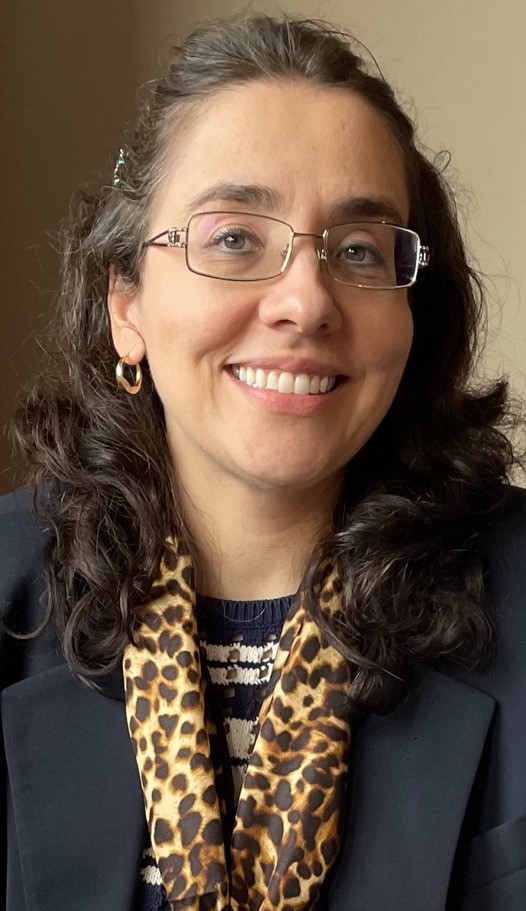
Theodote Pontikes, MD, MBA-HCM, DFAACAP, DFAPA, FACLP
Associate Professor, Stritch School of Medicine & Program Director, Psychiatry Residency
Loyola University Medical Center
Maywood, Illinois, United States- JH
Jocelyn Herrera, MD
resident physician
Loyola Medicine
Elmhurst, Illinois, United States - MK
Marla Kolovitz, n/a
Social Worker
Loyola University Medical Center
Maywood, Illinois, United States - EM
Edwin Meresh, MD, MPH, FACLP
Professor of Psychiatry
Loyola University Medical Center
Maywood, Illinois, United States
Presenting Author(s)
Co-Author(s)
2018: total patients discussed, n=365, 124 discussions involved CL (34%) 2019: total patients discussed n=288, 118 discussions involved CL (41%) 2021 (9 months data available): total patients discussed n=142, 71 discussions involved CL (50%) 2022 (9 months data available): total patients discussed n=195, 119 discussions involved CL (61%) CL patients post-pandemic were discussed in increasing numbers compared to the pre-pandemic. 1. Ben Grimshaw and Ella Chaudhuri, Mental-health-related admissions to the acute medical unit during COVID-19, Clin Med January 2021 2. Torales J, O'Higgins M, Castaldelli-Maia JM, et al. The outbreak of COVID-19 coronavirus and its impact on global mental health. Int J Soc Psychiatry 2020;66:317–20. 3. Ettman C, Abdalla SM, Cohen GH, et al. Prevalence of depression symptoms in US adults before and during the COVID-19 pandemic. JAMA Network Open 2020;3:(9):e2019686. 4. George Witte, Alan Yates: Should Mental Health Services be Integrated into General Hospitals? Health Management, Volume 9, Issue 3 /2007
Background: Patients presenting with a common mental health problem very often have medical problems. The number of mental-health-related admissions to hospital has increased during the COVID-19 pandemic.1 COVID-19 is a significant stressor.2,3 Patients with enduring psychiatric symptoms have a much bigger spectrum of needs4. Though it is common for patients with mental health problems dealing with medical conditions, many states lack an adequate number of inpatient psychiatry units or med/psych units. This leads to increased length of stay in hospitals. It is important to analyze patient characteristics as it pertains to who cares for them, how much psychiatric care they need, admission length of stay, and cost. The Complex Case Committee is part of the hospital’s case management team and meets on a weekly basis regarding discharge plan for medical and surgical patients. We analyzed the characteristics of psychiatric patients on the complex case committee list as they compare to the general medical population at Loyola University Medical Center (LUMC) before and after the COVID-19 pandemic. We hypothesized seeing a shift in larger percentage of medical to consultation-liaison (CL) psychiatry patients in this time period.
Methods: Complex case committee lists from January 2018-2023 were reviewed and divided into 2 groups: 1. Patients followed by CL psychiatry and 2. Patients from medical and surgical divisions not requiring psychiatry consults. The following data were collected: number of patients with a psychiatric diagnosis as it compares to the general medical patients on the complex case list, reason for presentation to LUMC and recommended management, and length of stay for psychiatric care compared to general medical population.
Results: CL psychiatry patients versus general medical patients discussed for discharge planning during complex case meetings:
Discussion: It is likely that CL patients with their med/psych needs stayed in the hospital longer as the committee discussed disposition challenges, This has implications for CL psychiatry as care is provided for these patients.
Conclusion: This study has identified an increasing trend of CL patients in complex case list of the medical center. Multi-center study is needed.
References:

